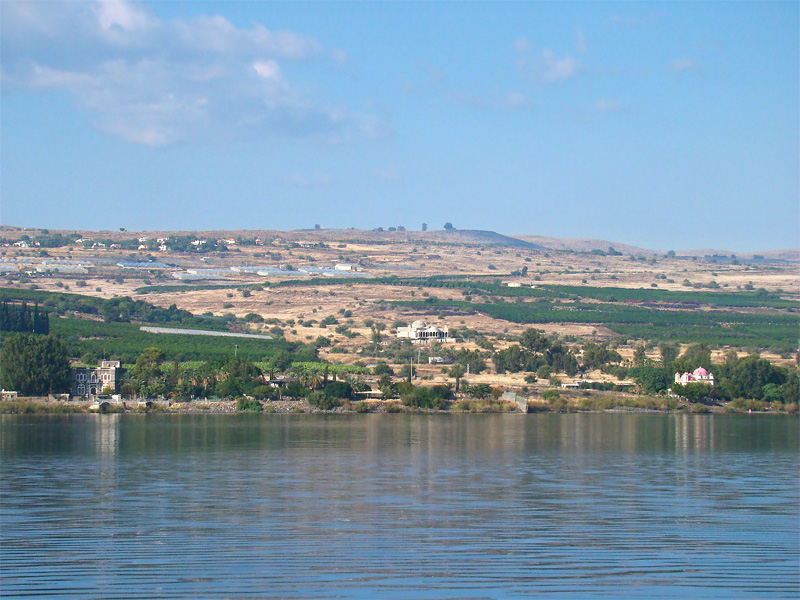And they went into Capernaum; and immediately on the Sabbath he entered the synagogue and taught. And they were astonished at his teaching, for he taught them as one who had authority, and not as the scribes. And immediately there was in their synagogue a man with an unclean spirit; and he cried out, “What have you to do with us, Jesus of Nazareth? Have you come to destroy us? I know who you are, the Holy One of God.” But Jesus rebuked him, saying, “Be silent, and come out of him!” And the unclean spirit, convulsing him and crying with a loud voice, came out of him. And they were all amazed, so that they questioned among themselves, saying, “What is this? A new teaching! With authority he commands even the unclean spirits, and they obey him.” And at once his fame spread everywhere throughout all the surrounding region of Galilee. — Mark 1:21-28
Reflection
The demon recognised that Jesus was more than a man and that he was being confronted with deity. The name (the Holy One of God) implied Jesus’ divine origin. Jesus’ teaching in the synagogue was delivered not only with loving authority, but, in addition, his words and actions pointed to the source of the love and the authority that had been so powerfully demonstrated. The Saviour would not allow the demon to say anything more about his identity and mission because gaining publicity was not his priority. In imitation of Jesus, the teacher must teach, not for her own glory in order to advance her career or to gain acceptance or to win approval, but for the glory of God and for the benefit of her students. God requires that his people do everything to His glory (1 Cor. 10:3). All of life and every activity must be lived under the lordship of Christ and reflect the character of Jesus to the glory of the Father.
Rick Crandall (http://www.sermoncentral.com/sermons/who-dat-gonna-give-glory-to-god-rick-crandall-sermon-on-fruit-of-the-spirit-146384.asp?Page=2) tells a story about a missionary kid. When he was twelve, his parents went back to their mission station in India. They left the boy with his grandmother, thinking that it would not be too long before they would be reunited. Unfortunately World War II broke out and the family was separated for eight years. The family had to wait until the boy’s twentieth birthday before they saw him again. Their son said,
“I’ll never forget it. It was almost dark when the train finally pulled into the station. Mother and dad were the only ones who got off. I could barely see them in the haze, and they couldn’t really see me – we embraced in semi-darkness. Then mother took my hand, and we went into the waiting room where there was more light. With tears running down her cheeks, she looked at me. She kept looking at my face, long and hard, staring at me. Then she turned to my dad. ‘Arnett!’ she cried, ‘he’s gone and looked like you! He looks just like you!’”
Questions
- What step can I take today to make my life more like Jesus, so that my students see Jesus in me?
- Do I serve the Lord or myself? As I look at my priorities in life I will discover the answer. Do I seek the things of God and the kingdom of God above all else?
Prayer
Dear God, in all my endeavours today, help me to be an instrument of your will so that I may be useful to you. Please empty me of self so that your glory can be enhanced through my invisibility. In all I do today, may I seek nothing but your glory so that my students will be inspired to be what you want them to be. Make me like a mirror, in which the compassion and wisdom of God are reflected. May their knowledge of you be increased today and may that move them to prayer and praise. This I ask in Jesus’ name. Amen.
Image: Capernaum viewed from Lake Tiberias, Israel; courtesy of Tango7174 at Wikimedia Commons, https://commons.wikimedia.org/wiki/File:Israel_Tiberias3_tango7174.jpg
Note: Part of both the Scholar’s Compass series and Robert Brodie’s Teaching With Authority series at the Emerging Scholars Network Blog. Find Part 1 here and Part 2 here.
Robert W. Brodie, D.Phil., is a post-graduate supervisor for MTh and PhD degrees and an academic assessor for the South African Theological Seminary (SATS) in Johannesburg, South Africa, and Living Word Bible College in Pretoria, South Africa. He and his wife Edna have recently relocated to New Zealand to join their daughter Patricia in Invercargill. Jennifer-Joy, their eldest daughter, lives in Australia, while Catherine, their youngest daughter, is still in South Africa. Dr Brodie continues to facilitate distance education courses for SATS and to supervise SATS post-graduate students on a part-time basis from New Zealand. He has edited three theological books in the past three years, contributed a chapter to a theological work and is currently writing two chapters for a further theological handbook.


Leave a Reply